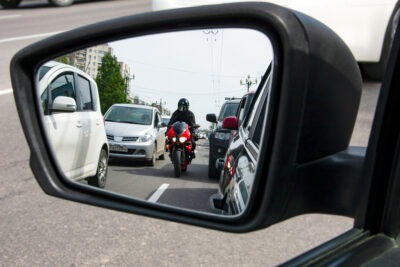
While car insurance may offer some coverage for motorcycle accidents and other eventualities on the road, it’s important to understand the limits of your own policy. In a motorcycle accident, the question of whether car insurance covers the damages can be tricky. Often, the answer depends on the type of coverage and the specific circumstances of the accident.
Motorcycle accidents can be very different from car crashes due to the nature of the vehicles and the risks involved. Drivers of cars and motorcycles face unique challenges, so it’s important to know how insurance policies work for both. An Atlanta motorcycle accident lawyer can explain everything about coverage and how you can seek fair compensation.
Car Vs Motorcycle Accidents – Explained by a Personal Injury Lawyer
Motorcycle accidents often result in more serious injuries compared to car crashes, which makes having the right insurance protection even more important. In many cases, when an accident occurs between a car and a motorcycle, the driver of the motorcycle is at a higher risk of severe injury or death.
If a car driver is at fault, their auto insurance policy may cover some of the damage. Still, the limits of their liability coverage might not be enough to cover all your medical expenses, rehabilitation costs, and repair bills for your motorcycle. Our guide to motorcycle accident claims can help you understand how liability works.
Motorcycle Insurance Necessities
To protect yourself on the road, it’s important to have adequate motorcycle insurance coverage. Different types of motorcycle insurance policies can offer protection in various situations. Some essential types of coverage include:
- Liability coverage: This is the minimum required by law in most states. It covers damages to another person’s vehicle or property when the rider is at fault.
- Collision insurance: This covers damages to your motorcycle caused by a crash, regardless of fault. This is important for motorcycle riders who want to be sure their vehicle is protected in the event of an accident.
- Comprehensive coverage: This coverage provides protection against damages from incidents that aren’t related to a crash, such as theft, natural disasters, or vandalism.
- Medical payments coverage: This can help with medical bills following a motorcycle accident, covering medical treatments like surgeries, rehabilitation costs, and physical therapy.
A motorcycle insurance policy can be customized with additional coverage options like guest passenger liability insurance or motorcycle collision insurance. For custom motorcycles, riders can also look into accessory coverage for their modifications, like chrome pieces and custom paint jobs.
Get the strong arm
Differences Between Car and Motorcycle Insurance
While there are some overlaps, car insurance and motorcycle insurance are very different in several ways. A major difference is the amount of protection they offer and how they address the unique risks each vehicle type faces.
- Coverage: Car insurance typically covers more expensive property damage. However, motorcycles are often more prone to severe injuries or fatalities during crashes, which is why motorcycle insurance coverage must address those risks more directly.
- Policy limits: Car insurance policies may not cover the same extent of motorcycle repairs or medical expenses. Even if you have comprehensive coverage or collision insurance through a personal automobile insurer, the damages from a motorcycle crash can exceed the limits of those policies.
- Premiums: A motorcycle insurance premium can be higher for experienced riders or those who own high-performance bikes, which means you’ll need to consider your risk profile and coverage limits carefully when buying a policy.
For a motorcycle to be properly covered, it’s best to have a motorcycle insurance policy that addresses the specific risks of riding, such as bodily injury liability and property damage insurance.
Protecting Your Rights After a Car and Bike Accident
Getting into a car-bike accident can leave you with serious injuries, expensive medical bills, and emotional stress. Knowing your options and how to respond can help protect your rights and reduce the impact of the incident on your health, finances, and future.
After a crash, it’s important to understand what steps to take, what kind of insurance coverage may apply, and how to deal with insurance companies. This includes both your health insurance and auto insurance policy, depending on the situation.
Important First Steps After the Accident
Taking action right away may help protect you in case of a legal dispute or insurance claim. Motorcycle accident attorneys and personal injury lawyers often suggest these steps.
- Call for medical help, even if you feel okay. Some severe injuries are not obvious at first.
- Report the accident to the police and ask for a copy of the report.
- Collect contact and insurance details from the other driver or motorist involved.
- Take pictures of the accident scene, your bike, and any visible injuries.
- Knowing what NOT to say to your insurance adjuster after an auto accident
Know What Insurance May Cover
Understanding what insurance policies apply can help when dealing with insurance providers. Different types of insurance may cover other parts of your loss.
- Your health insurance may help with medical expenses, though you may still have to pay co-pays or meet your deductible.
- If the at-fault driver has liability insurance, their insurance company may pay for your property damage and medical costs.
- Your own auto insurance or motorcycle insurance policy may offer uninsured motorist coverage or underinsured motorist coverage if the other party has no or limited protection.
Documentation Can Help Support Your Case
Keeping good records can support your claim for financial compensation or insurance payouts. These may include:
- Doctor bills and hospital records for your medical treatments
- Receipts for motorcycle repairs or bike repairs
- Proof of time missed from work and lost income
- Emails or letters from the insurance agent or insurance provider
- Journal entries about pain, post-traumatic stress disorder (PTSD), or changes in daily life
In any situation, protecting your rights means staying informed, keeping good records, and seeking the help you need. Taking these steps may help you find a fair outcome after a difficult event.
A Motorcycle Accident Lawyer Can Answer Your Questions Today
If you’ve been involved in a motorcycle crash, dealing with the aftermath of the accident can be stressful. Understanding how your motorcycle insurance policy interacts with other coverage options and the role of an insurance provider can be overwhelming. This is where a motorcycle accident lawyer can step in to offer support.
Our lawyers at John Foy & Associates can help you explore your legal options and ensure that you receive fair compensation for your injuries, property damage, and medical expenses. Get The Strong Arm™ lawyer. We can assist in determining if there are additional insurance policies or coverage options available to you, such as medical payments coverage or uninsured motorist protection.
(404) 400-4000 or complete a Free Case Evaluation form



